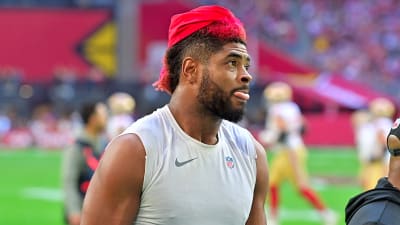
Power Four schools would be required to sign or else risk being evicted from their conferences, regardless of the laws directly contradicting the NCAA.
A few weeks ago, the State of Tennessee threw the latest wrench into the war against NIL, as Gov. Bill Lee signed Senate Bill 536 into law, empowering state schools like Tennessee, Vanderbilt, and Memphis to directly facilitate NIL deals—even through third-party collectives.
Additionally, the law shields those schools from NCAA or College Sports Commission (CSC) enforcement if they’re operating within state law—Tennessee just effectively dared the NCAA to “do something.”
The law directly conflicts with the pending House v. NCAA settlement, which aims to reshape college sports into a revenue-sharing model with enforceable rules. Under the agreement, the NCAA and power conferences would cap school-to-athlete payments and install a third-party clearinghouse—nicknamed “NIL Go”—to vet NIL deals for fairness and legitimacy. The settlement is awaiting approval from Judge Claudia Wilken and is expected to launch on July 1.
But Tennessee isn’t playing along. The state’s new law blocks outside enforcement from penalizing member schools and prevents organizations like the CSC from threatening conference membership or revenue for noncompliance. That throws a wrench into what the NCAA hoped would be a unified, enforceable future.
To combat this, the SEC, Big Ten, Big 12, and ACC are circulating a draft “Membership Agreement” that would bind schools to settlement terms, even if they violate state law. According to Yahoo Sports’ Ross Dellenger, schools would also be required to waive their right to sue the CSC and resolve disputes through arbitration instead. The catch? You don’t sign it, you don’t play.
“You have to sign it—or we don’t play you,” one AD told Yahoo Sports.
Legal experts say the agreement is risky for public universities. Ramogi Huma, director of the National College Players Association, calls it a “smoking gun in liability.” And sports law attorney Gabe Feldman adds, “No matter what the sides do, they’re going to be sued.”
Meanwhile, the enforcement arm of this new model—NIL Go—is already drawing scrutiny. According to Deloitte, which will run the clearinghouse, 70% of booster-backed collective deals would’ve been denied under its algorithm-based market value system. Athletic directors are already bracing for the fallout.
“If we go back to pay-for-play with collectives, why did we settle?” asked Baylor AD Mack Rhoades.
Oklahoma AD Joe Castiglione told Yahoo Sports that member schools must “truly commit” to the settlement, or it won’t stand a chance.
The bottom line? Tennessee’s law could spark an NIL arms race, as other states move to gain competitive advantages. Without a federal law to level the playing field, college sports could fracture even further—into a messy patchwork of state-controlled models, uneven enforcement, and looming legal battles.
And that July 1 deadline? It’s coming fast. Buckle up.
More must-reads:
- NASCAR team to shut down following race at Dover
- Top slugger on MLB trade block knows where he wants to play
- The 'NFL rookie 1,000-yard receivers' quiz
Breaking News
Trending News
Customize Your Newsletter
 +
+
Get the latest news and rumors, customized to your favorite sports and teams. Emailed daily. Always free!








